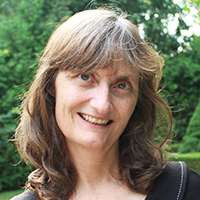Past Coverage of ACR 2016Past Coverage of ACR 2016 Return To RheumReports Home
Home Run with Stem Cell Transplant in Scleroderma

The long awaited SCOT (autologous stem cell transplant [HSCT] vs. IV cyclophosphamide [CYC]) trial in early severe diffuse scleroderma was a late breaking abstract at the ACR 2016 meeting in Washington (Sullivan K, et al. This trial virtually replicates the inclusion criteria and treatment from the previously published ASTIS (European stem cell transplant vs cyclophosphamide RCT) (van Laar JM, et al. JAMA 2014;311:2490-8).
In the SCOT trial, 75 patients were randomized to cyclophosphamide or stem cell transplant. These patients had poor predicted prognosis (mean modified Rodnan skin score was high at a mean of 30). Event-free survival was superior in transplanted patients (50% in CYC vs 79% in HSCT)
What does this mean? Four things:
This treatment is not for everyone – inclusion criteria should mimic those who have the highest risk of poor prognosis.
There should be lobbying for insurance reimbursement for HSCT in these patients.
It tells me that immune reconstitution delays bad events in early active dcSSc so perhaps we can find a magic bullet type treatment that gives the benefit of immune regulation but not all the side effects of HSCT.
I think there is hope for our active diffuse patients who are very ill.
Share This Report
About the Author

Dr. Janet Pope is Professor of Medicine at Western University and Division Head of Rheumatology. Dr. Pope's research interests include epidemiologic studies in scleroderma, classification criteria in systemic sclerosis, systemic lupus erythematosus and rheumatoid arthritis.
View Full Bio





